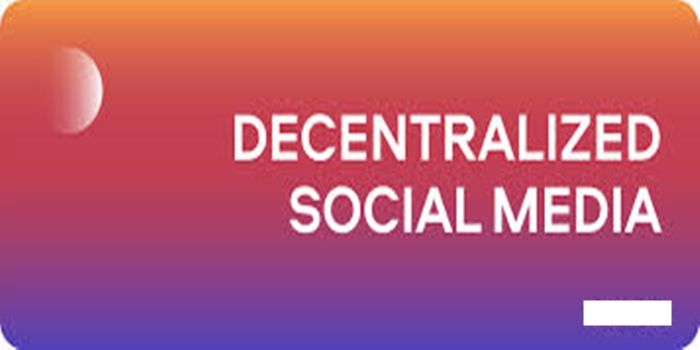In this article, we explained the meaning of decentralized social network, the features, the examples, we also outlined the benefits.
Definition
A decentralized social network is a platform where users connect and interact, but unlike centralized platforms, it’s not controlled by a single entity or company. Instead, it operates on a network of independently run servers, often using distributed technologies like blockchain. This allows users more control over their data, content, and how the platform operates.
The Features of Decentralized Social Network:
No single authority:
Unlike platforms like Facebook or Twitter, decentralized networks don’t have a central owner or controlling body.
Independent servers:
Users can choose to participate on different servers, or “instances,” and these servers can interoperate with each other.
User control:
Users have more autonomy over their data, privacy, and how the network is governed.
Distributed ledger technologies (DLT):
Many decentralized social media platforms utilize blockchain or similar technologies to record transactions and maintain the network’s integrity.
Community-driven:
Decisions about how the platform operates are often made collectively by the users, rather than being imposed by a central authority.
The Examples of Decentralized Social Network:
Mastodon:
This microblogging platform offers an alternative to Twitter, operating on independently managed servers and using the Activity Pub protocol to connect with other instances. Users on Mastodon can post, relog, and engage with others across the network.
Bluesky:
Developed as a response to Twitter’s (now X) centralized model, Bluesky uses the AT Protocol to create a decentralized social network.
Lens Protocol:
This decentralized social media framework allows users to own their content and build their own social media platforms using blockchain technology.
Minds:
Minds leverage Ethereum and cryptocurrency-based rewards to incentivize user engagement, offering tokenized payments for content creation and interactions.
Steemit:
A blockchain-based social media and blogging platform where users can earn cryptocurrency through upvoting.
Hive Social:
Hive Social is a blockchain-based platform that was forked from Steemit.
Diaspora:
Diaspora* is a decentralized social network that operates on independently run nodes, allowing users to connect and share content without relying on a central authority.
Peepeth:
A microblogging platform similar to Twitter, Peepeth is built on the Ethereum blockchain and leverages IPFS for secure user data storage.
Aether:
A peer-to-peer version of Reddit, Aether offers news aggregation and community discussion features, with a focus on self-moderation and privacy.
The Benefits of Decentralized Social Network:
User Control and Autonomy:
Decentralized platforms operate on independently run servers, giving users more control over their data and content. This includes the ability to set up their own social network and determine its rules, including content and behavior.
Data Privacy and Security:
Decentralized networks utilize blockchain technology and distributed databases, reducing the risk of data breaches and enhancing user privacy. Users can maintain control over their data and choose to share it with whom they want, unlike centralized platforms that often monetize user data.
Censorship Resistance:
With no central authority dictating content rules, decentralized platforms are more resistant to censorship. This is particularly important in regions with restrictive regimes where users can freely express themselves without fear of content removal or penalties.
Community-Driven Governance:
Decentralized networks often have community-driven governance models, where users can participate in decision-making about platform changes and policies. This fosters a sense of ownership and allows users to shape the platform collectively.
Enhanced Security:
Decentralized platforms can offer stronger security measures, as user data is stored across a network of nodes rather than a single central server, making them less vulnerable to hacking.
Diverse and Inclusive Communities:
Decentralized networks allow for the creation of smaller, specialized communities based on shared interests, values, and goals. This can lead to more diverse and inclusive online spaces where users can connect with like-minded individuals.
Reduced Reliance on Advertising:
Decentralized platforms may not rely on advertising revenue, which can lead to a more user-focused experience and potentially reduce the risk of targeted advertising or data collection.
Conclusion
Decentralized social networks are platforms where control and ownership are distributed among users, rather than being held by a single entity like a company. They operate on independent servers and often utilize blockchain technology for enhanced security and transparency. These networks aim to empower users, offering more control over their data, content, and interactions.


